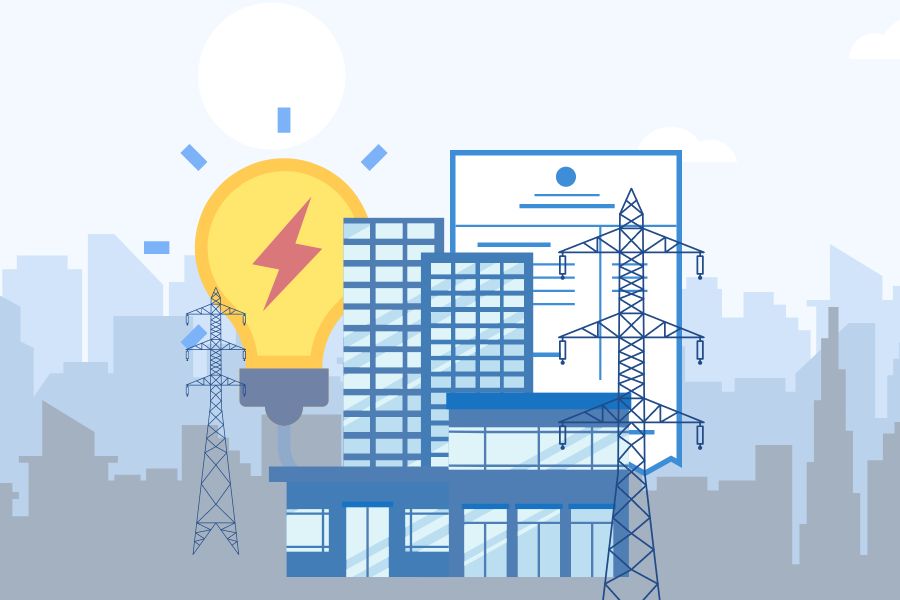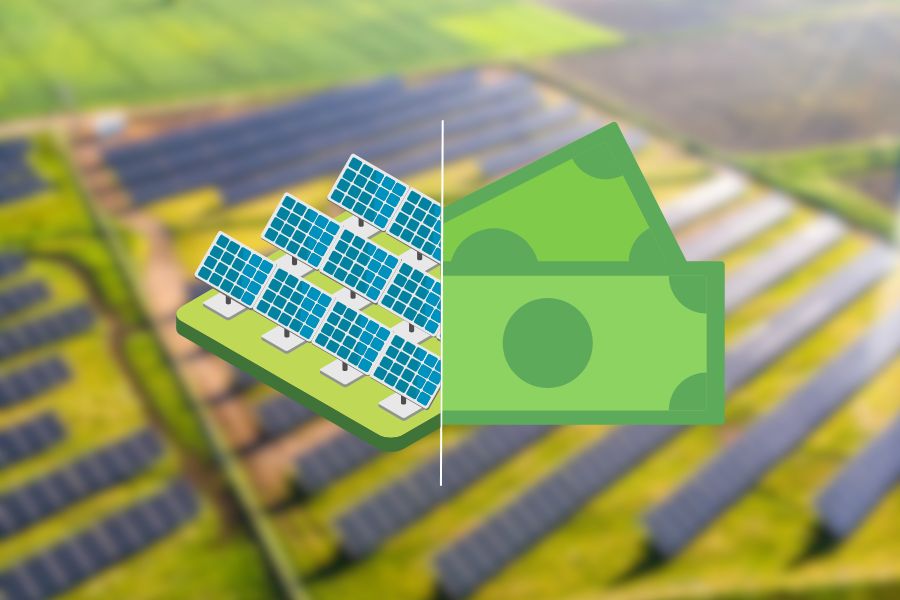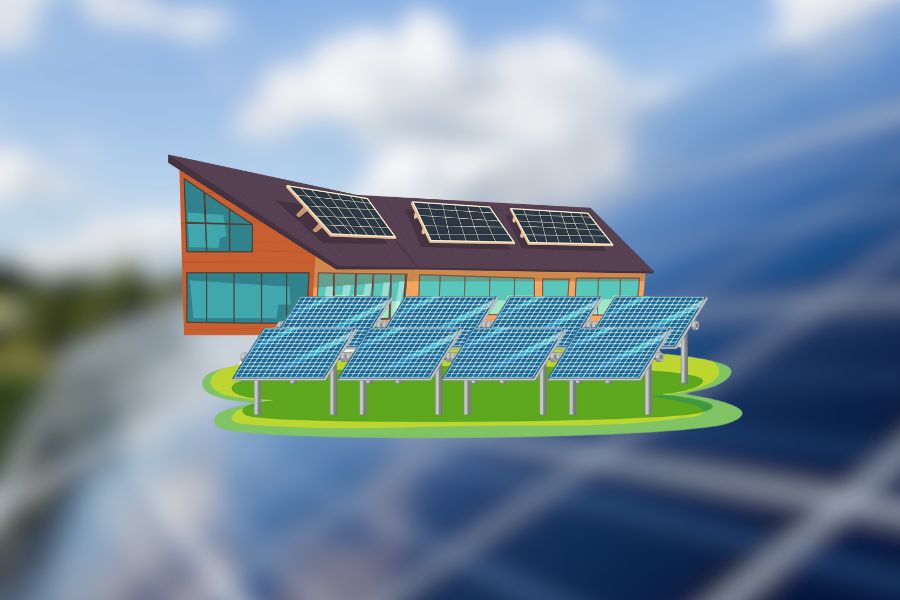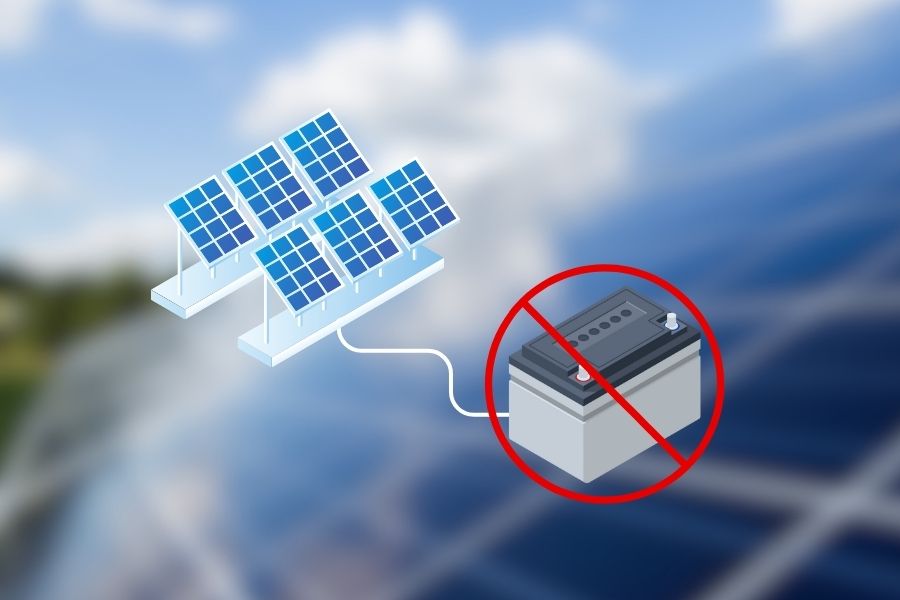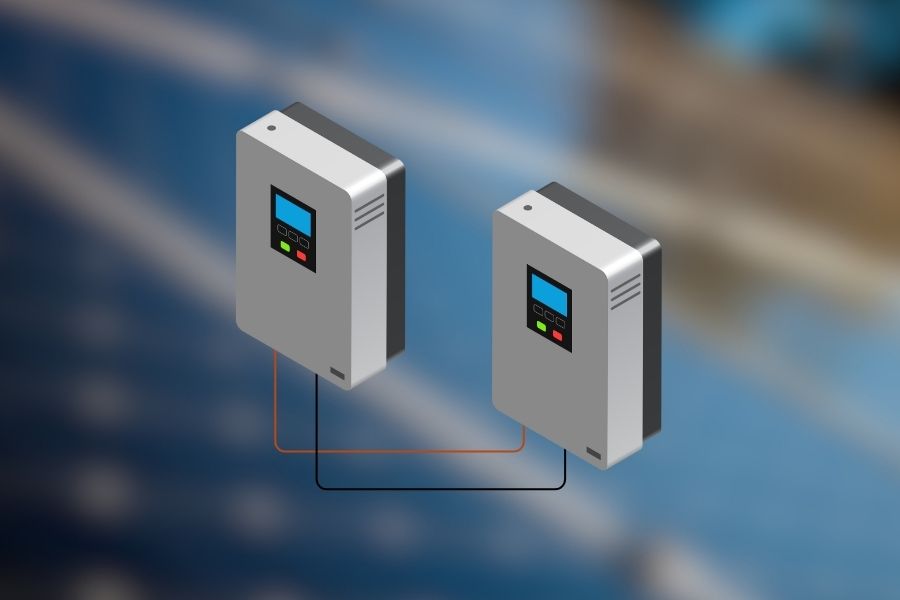Commercial electricity rates in Ireland can significantly impact businesses’ operating costs, influencing energy management and efficiency decisions.
These rates, subject to fluctuations due to factors like global energy markets and government regulations, can represent a major portion of a company’s expenses.
Furthermore, high electricity rates can encourage businesses to explore renewable energy sources and energy-efficient practices, driving innovation and sustainability in the commercial sector.
The impact of electricity rates extends beyond economics, playing a crucial role in Ireland’s transition to a low-carbon economy and shaping the country’s energy landscape.
Factors Influencing Commercial Electricity Rates in Ireland
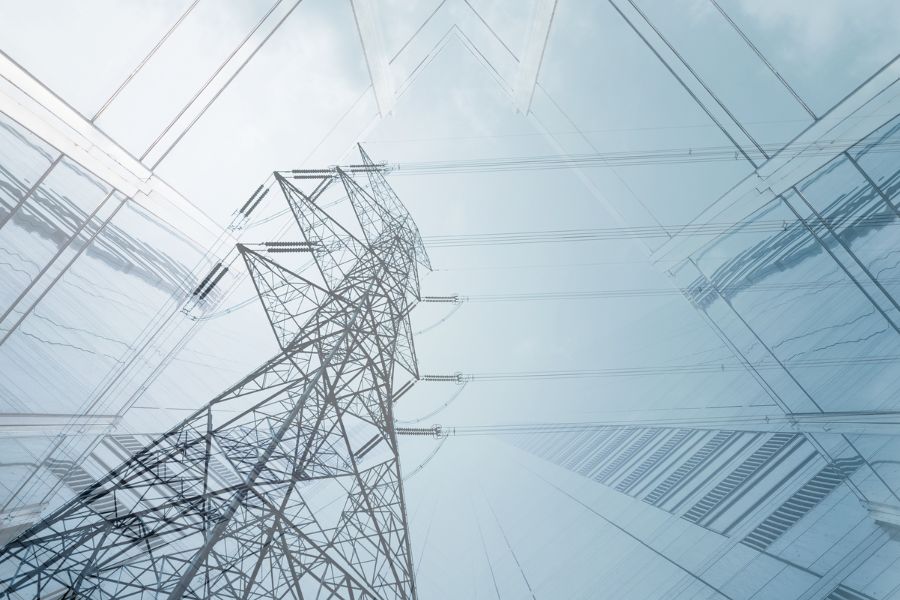
Wholesale Electricity Prices
Fuel Costs
Fuel prices, such as gas, coal, and oil, significantly impact wholesale business electricity prices. Therefore, fluctuations in fuel prices can directly influence the overall cost of energy supply.
Market Dynamics and Supply-Demand Factors
The interplay between supply and demand in the electricity market can cause fluctuations in wholesale prices. Factors like weather conditions, economic trends, and changes in electricity consumption patterns can affect the supply-demand balance and, consequently, the prices.
Transmission and Distribution Costs
Infrastructure Maintenance and Upgrades
The costs of maintaining and upgrading the transmission and distribution infrastructure, including power lines, substations, and transformers, can impact electricity rates. However, these expenses are necessary to ensure a reliable supply of electricity.
Network Losses and Efficiency Measures
Energy losses during the transmission and distribution process contribute to the overall costs. However, implementing efficiency measures, such as improving infrastructure and reducing technical failures, can mitigate these losses and potentially lead to lower electricity rates.
Renewable Energy and Sustainability Charges
Government Incentives and Subsidies
The Irish government provides incentives and subsidies to renewable energy generators to promote renewable energy adoption. The costs associated with these incentives, such as feed-in tariffs and grants, are reflected in electricity rates.
Costs of Renewable Energy Certificates
Renewable energy certificates, also known as guarantees of origin, are issued to verify the renewable source of the electricity supplied. The costs of obtaining and maintaining these certificates are typically passed on to consumers, impacting commercial electricity rates.
Types of Commercial Electricity Tariffs in Ireland
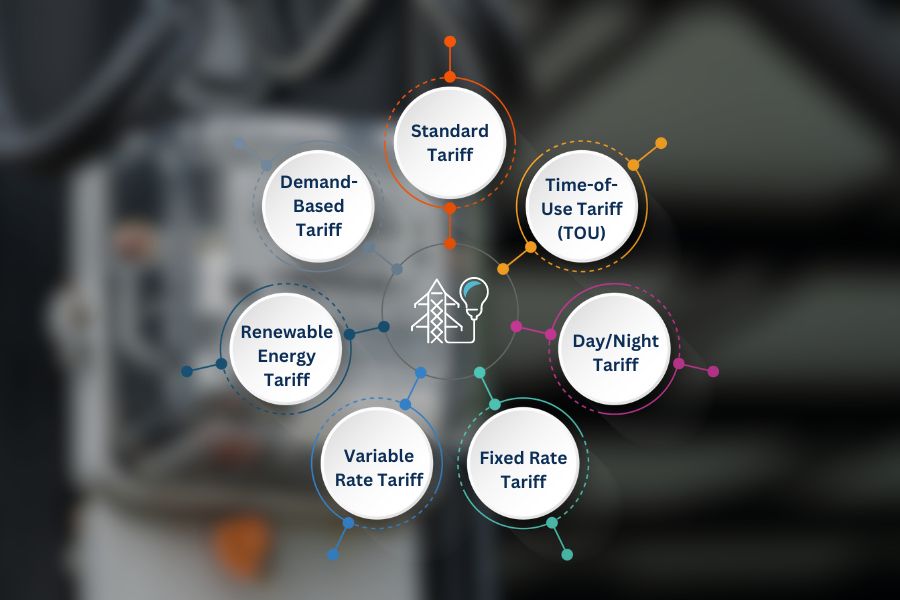
Standard Tariff
This is the default tariff provided by the electricity supplier. It usually has a fixed unit rate for electricity consumption, and the price may vary depending on the time of day or season.
Time-of-Use Tariff (TOU)
With this tariff, energy prices vary based on the time of day. There are typically three time periods: peak, off-peak, and night rate. Peak periods generally have higher energy bills, reflecting higher demand, while off-peak and night rates are lower.
Day/Night Tariff
Like TOU, this tariff offers different rates for electricity consumed during the daytime and at night. Typically, night rates are lower as they correspond to periods of reduced electricity demand.
Fixed Rate Tariff
With a fixed rate tariff, business customers pay a fixed unit rate for electricity consumption over a specified contract period. It provides stability as the speed remains constant, regardless of fluctuations in market prices.
Variable Rate Tariff
In this tariff, the unit rate for electricity consumption can vary periodically based on market conditions. The rate may change in response to wholesale energy prices or supplier pricing policies.
Renewable Energy Tariff
Some suppliers offer special business energy tariffs prioritizing renewable energy sources. These tariffs support using environmentally friendly energy and may involve higher costs but contribute to sustainability goals.
Demand-Based Tariff
This type of tariff considers a business’s peak demand. The pricing structure encourages customers to manage their electricity deals and usage during peak periods. They offer lower rates during times of lower need.
Understanding and Managing Commercial Electricity Usage

Effective management of commercial electricity usage is crucial for businesses to control costs and improve energy efficiency.
By understanding and implementing strategies to optimize electricity usage, businesses can reduce their environmental impact and enhance their bottom line. Here are vital aspects to consider:
Energy Efficiency Measures
- Importance of Reducing Energy Consumption: Businesses should prioritize energy efficiency to minimize waste and lower electricity bills. Implementing energy-efficient practices and technologies can significantly reduce overall usage.
- Benefits of Energy Audits and Retrofits: Conducting energy audits helps identify areas of high consumption and potential energy-saving opportunities. Retrofitting buildings with energy-efficient equipment, such as LED lighting or efficient HVAC systems, can yield long-term savings.
Smart Metering and Monitoring
- Real-Time Usage Data: Smart meters give businesses real-time insights into electricity consumption patterns. Monitoring energy usage can help identify peak demand periods and pinpoint areas for improvement.
- Identifying and Addressing High-Consumption Areas: Analyzing smart meter data enables businesses to remember energy-intensive processes or equipment. This knowledge can guide targeted efforts to optimize usage and reduce costs.
Employee Engagement and Energy Conservation
- Training and Awareness Programs: Educating employees about the importance of energy conservation fosters a culture of responsibility and encourages behavioral changes. Training programs can provide practical tips for reducing energy waste in the workplace.
- Incentives for Energy-Saving Behavior: Recognizing and rewarding employees who actively contribute to energy conservation efforts can boost engagement and create a sense of ownership among staff members.
What Are the Average Gas and Electricity Prices in Ireland?
For the first half of 2023, the average commercial electricity price in Ireland was 27.29 Euro cents per kWh. Regarding gas, the average price for businesses during the same period was 8.02 Euro cents per kWh. These figures are provided by the Sustainable Energy Authority of Ireland (SEAI) and reflect the latest available data (Sustainable Energy Authority Of Ireland).
Why Compare Energy Suppliers and Prices?
Comparing and switching energy suppliers allows consumers to understand the cost per kilowatt-hour (kWh) and additional charges like the standing charge. Evaluating these costs helps determine an energy deal’s overall affordability and value.
While a supplier may offer a low cost per kWh, they might offset it with a higher standing charge, impacting the overall cost.
Therefore, comparing these costs is essential to understand the value offered by each supplier and choose the most suitable option for your energy needs.
Conclusion
Understanding commercial electricity rates in Ireland is crucial for businesses to make informed decisions about their energy plans. Companies can find the most suitable energy deals and suppliers for their specific needs by exploring various options.
It’s essential to consider factors such as contract terms, pricing structures, and additional charges like standing charges to assess the overall value of an energy plan.
Businesses can optimize their energy costs by comparing different electricity deals and suppliers and potentially achieve significant savings.
So, take the time to research and compare business supply options to secure the best commercial electricity rates for your business in Ireland.
